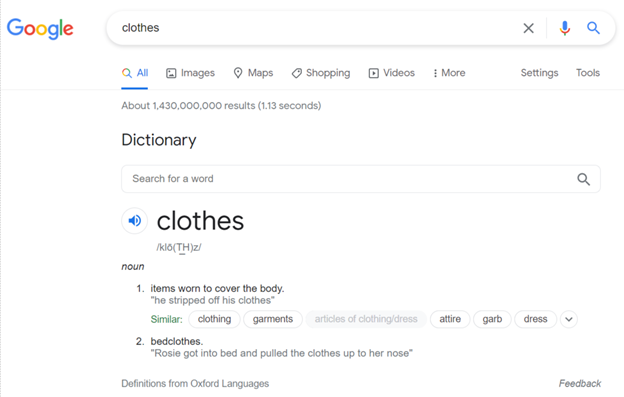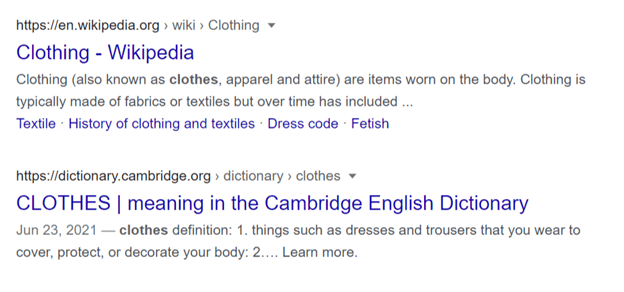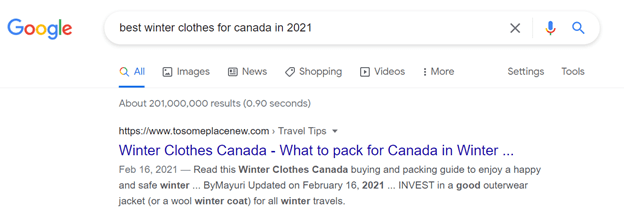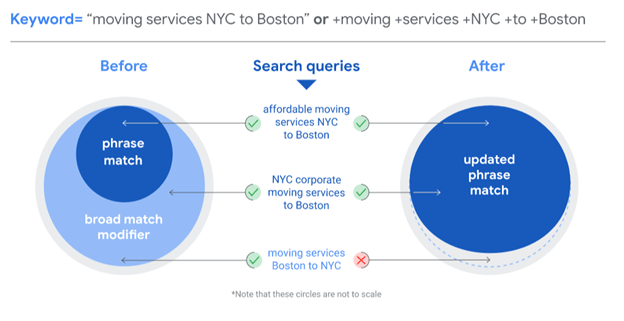What Are Keyword Modifiers?

Hand off the toughest tasks in SEO, PPC, and content without compromising quality
Explore ServicesUsing keyword modifiers in your content and SEO strategy will significantly increase your chances of ranking on the first page of Google and other search engine results pages (SERPs).
In this article, we look at:
- What keyword modifiers are
- Why leveraging keyword modifiers is important for attracting your target audience
- The different categories of keywords
- How keyword modifiers relate to various steps in the customer journey
What are keyword modifiers?
Keyword modifiers are words that you can use to make your primary keyword more specific.
Generally, using keyword modifiers to target a search query results in a long-tail keyword that is relevant to your industry and niche but focuses on a particular aspect of your business.
For example, at Loganix, our business is SEO and backlink building.
These two keywords, “SEO” and “backlink building,” are incredibly competitive, with numerous companies all vying for the top ranks in Google for these search terms.
We need to modify these keywords with keyword modifiers so we can attract customers at different stages in their buyer journey and try to rank for less competitive keywords.
Say you own a plumbing business in Toronto you’re looking for SEO services for your website. Chances are, you’re not only going to type “SEO services” into Google.
You might type “SEO services in Toronto,” “SEO services for local businesses,” or “Best SEO for a plumbing business.” You’ll notice that these long-tail searches all have the primary keyword SEO – but they also have modifiers that delineate the location of the service.
- Primary keyword: SEO
- Modifiers: best, plumbing business, local businesses, Toronto
So you can see that keyword modifiers are extra words and phrases people use to get more specific in their search engine queries.
These modifiers will be:
- General
- Niche related
- Geo dependant
General keyword modifiers are words like ‘best’, ‘expensive’, ‘popular’.
Niche related keyword modifiers are relevant to your particular niche or industry:
- Exercise (health)
- Quote (travel insurance)
- Artist (music)
- Business-class (plane tickets)
- High heels (clothing)
Geo dependant keyword modifiers are the names of places and locations, denoting a geographical spot: Sydney, Bali, Europe, Canada.
People might ask search engines specific questions, like “where is the best Chinese restaurant in downtown Toronto?”. This phrase includes all three types of keyword modifiers from our keyword list above.
Why are Keyword Modifiers Important?
Keyword modifiers are important because they allow you to formulate a content marketing strategy that targets keywords in your business with close variations so that you have a realistic chance of ranking in the SERPs.
Keywords without modifiers are incredibly competitive.
For one thing, if you type in “clothes” into Google, you’ll get a definition from the oxford dictionary.


Then, after local businesses and local paid ads, you’ll find a Wikipedia article on clothing and another definition for clothes by the Cambridge dictionary.
 Good luck outranking these websites.
Good luck outranking these websites.
They’re some of the strongest websites ever to exist, Wikipedia with a DR 86 of and nearly 40k referring domains, and the Cambridge dictionary with a DR of 91 with almost 90k referring domains.


It’s almost impossible for your clothing eCommerce store to ever outrank these websites for the single primary keyword “clothes”.
However! Suppose you were to use keyword modifiers and search for “best winter clothes for Canada in 2022”.
In that case, you’ll notice the first rank is a precisely written article from tosomeplacenew.com, a website with a DR of 31 and around 1.2k referring domains.


Now, in reality, achieving a domain rating of 31 isn’t incredibly difficult (with the correct link building and content strategy). You could expect to win the first rank in Google for an article published on your website selling nice Goose-down jackets for Canadian travel in around 6-12 months – if you were strategic about which keyword modifiers your target in your digital marketing strategy.
So, the importance of keyword modifiers is highlighted by the reduction in competition for those keywords. While metrics such as monthly search volume will be less for such words, you can also target close variants, synonyms and common misspellings as a way to cast your net wider and attract as much organic traffic as possible.
Keyword Modifiers FAQ
What are keyword match types?
Keyword match types are variants of a keyword. You might have a broad match, modified broad match, a phrase match, or an exact match. The type of keyword match you should use in your marketing campaign depends on the focus of your campaign – the more niched and specific your target audience, the more precise your keywords should be.
As such, for a specific campaign, focus on phrase match of exact match keywords. For more general audiences, focus on broad matches or modified broad matches.
What is broad match modifier keywords?
As Google tells us, a broad match modifier (BMM) keyword is a keyword that covers searches that traditionally focused solely on the words in a search. Now, the order of words matters. This is particularly relevant to geo dependant keywords, such as moving services:

What are different types of keywords?
Different types of keywords focus on the different user intent compelling them to ask a search engine a question. While different SEO practitioners will argue over the particulars of what defines different keyword varieties and how many distinct types there are, there are generally 5 overarchin keyword types:
-
- Short tail keywords. These are single or two word topics users ask google.
- Long tail keywords. These are generally sentences that users type into search engines and are highly specific to the niche.
- Geo-targeting keywords. These are like keyword modifiers that target a particular physical location.
- Product defining keywords. Keywords that are relevant to a particular product.
- Customer defining keywords. Keywords that show SEO professionals what type of customer is asking the query.
What is a location modifier?
A location modifier is a keyword that targets a particular physical location. It is the name of a city, country, state, street, mountain, location, ocean – any geolocation.
How do you organize keywords?
Keywords are best organized according to two primary metrics: monthly search volume and competitiveness. Using search term reports to assess these values for a given specific keyword can help you target keywords that are valuable to your business but have less competition. Doing so optimizes your chances of searchers finding your page.
Summary
Hopefully, this article has given you a better understanding of keyword modifiers and how you can use them on your landing page, wordpress site, or any blog article to attract your target audience.
Using keyword modifiers around your brand name could help in the optimization of your website for SEO and also make your brand more memorable for omnichannel marketing, such as social media and email marketing.
Getting your keyword research right is essential to your online success, which is why we at Loganix encourage you to get in touch with us here and see how we can assist you in your keyword research to make sure you attract your target audience in as short amount of time as possible.
Hand off the toughest tasks in SEO, PPC, and content without compromising quality
Explore ServicesWritten by Jake Sheridan on July 20, 2021
Founder of Sheets for Marketers, I nerd out on automating parts of my work using Google Sheets. At Loganix I build products, and content marketing. There’s nothing like a well deserved drink after a busy day spreadsheeting.





